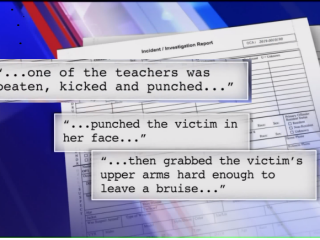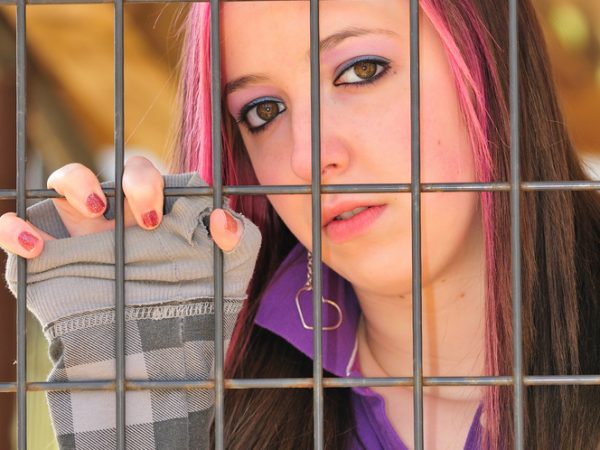Current News Stories
Current News Stories
As States begin to reopen, it is important that we are ready and have established protocols in place. The current strategy is to provide a structured and phased guideline for reopening while leaving it up to the Governors of each state, and regions on the exact timing for implementing each phase.
The protocol outlined below is based on the standards and requirements we are seeing across multiple regions and States. These protocols will vary based on i.e. (1) State requirements; (2) phase of re-opening; (3) whether the training is on-site or via seminar, and (4) the client.
This protocol is subject to modification. We're using the best available information at hand.
HWC Training Protocols include:
Participants attending HWC Training must certify they are healthy and to the best of their knowledge NOT at risk of spreading COVID (i.e. do not have COVID symptoms, do not have COVID and are not in a quarantine or stay at home period if exposed to COVID).
Participants who show signs of symptoms of COVID cannot attend training.
The room size provided by the organization will meet State distancing or occupancy requirements for the number of Participants expected.
Prior to attending everyone (HWC trainers included) will be asked to take their temperature and make an self-health assessment that they are not experiencing COVID symptoms. We're setting 100 degrees Fahrenheit as the maximum temp permitted to participate. Please ask your staff to self-screen their temps at home on the morning of training.
Prior to attending the training or entering the training room there will be a sign-in table where temperature will be taken, participants will sanitize or wash their hands, and gloves (hand sanitizing) and masks will be required. We ask that no one enters the training room until their sign-in process is completed.
Masks and gloves stay on unless the person leaves on a break. When the person returns, s/he must resanitize and change gloves. The same mask can be kept.
Masks stay on unless you need to remove it to speak or breathe. If the mask is taken off social distancing must be adhered to. Before the mask is dropped the person must distance 6 feet from the nearest person. Trainers can drop their mask for longer briefings, explanations, broadcasting training. The trainer has to be at least 6 feet away if his/her mask is down.
Where social distancing cannot be maintained, masks and gloves must be worn.
During Personal Defense, each participant will keep the same partner.
During the physical restraint training, including "spotting" practice, particpants will be divided into small groups and remain with that group throughout.
HWC recommends that participants bring a change of clothing for after training
Additionally
If there is any question about scheduling HWC training, the Client should check with the State and/or licensing agency as to when training can proceed.
There may be last minute schedule adjustments or rescheduling due to COVID i.e. the trainer becomes ill and there is no time to provide a substitute trainer or a substitute trainer is not available, changing COVID protocols, restrictions or limitations.
If the last minute cancellation is due to HWC, we will cover HWC (not client) out-of-pocket travel costs. If the last minute cancellation is due to the organization/client, the organization shall cover any HWC incurred non-refundable costs.
Too many students are being diverted from school into the criminal justice system.
The school-to-prison pipeline “is one of our nation’s most formidable challenges, states the report." “It arises from low expectations; low academic achievement; incorrect referral or categorization in special education; and overly harsh discipline, including suspension, expulsion, referral to law enforcement, arrest and treatment in the juvenile justice system." And, the report notes, “Throughout these causes runs evidence of implicitly biased discretionary decisions, which, unintentionally, bring about these results."
What the report fails to mention is that the causes are not generally biased discretionary decisions, but policies imposed on schools by legislators, regulators and school boards. There has been a movement across the country that takes the authority away from individual schools. Individual schools often no longer have the authority to make discipline, safety, educational or treatment decisions as their discretion has been usurped by policy makers and people removed from the classroom.
The result, while, perhaps, unintentional, was absolutely foreseeable.
When you take the authority and ability to maintain a safe and effective educational environment away from the school and educators, and place the authority in the hands of law enforcement, there will be a rise in the number of students entering the school --> to --> prison pipeline.
HWC Facebook Page
Read More
This is a great must read article from the Wall Street Journal. With School Boards and Education Departments passing guidance, rules, regulations and laws preventing teachers from intervening or removing students from the classroom for altercations, property damage, verbal disruptions, what did these boards, departments, schools and disability lobbyists (aka advocates) think would happen.
Intervention is going to take place. Either teachers will be given the ability to intervene for common disciplinary problems, or law enforcement will be called.
A generation ago, schoolchildren caught fighting in the corridors, sassing a teacher or skipping class might have ended up in detention. Today, there’s a good chance they will end up in police custody.
Stephen Perry, now 18 years old, was trying to avoid a water balloon fight in 2013 when he was swept up by police at his Wake County, N.C., high school; he revealed he had a small pocketknife and was charged with weapons possession. Rashe France was a 12-year-old seventh-grader when he was arrested in Southaven, Miss., charged with disturbing the peace on school property after a minor hallway altercation.
In Texas, a student got a misdemeanor ticket for wearing too much perfume. In Wisconsin, a teen was charged with theft after sharing the chicken nuggets from a classmate’s meal—the classmate was on lunch assistance and sharing it meant the teen had violated the law, authorities said. In Florida, a student conducted a science experiment before the authorization of her teacher; when it went awry she received a felony weapons charge.
Over the past 20 years, prompted by changing police tactics and a zero-tolerance attitude toward small crimes, authorities have made more than a quarter of a billion arrests, the Federal Bureau of Investigation estimates. Nearly one out of every three American adults are on file in the FBI’s master criminal database.
This arrest wave, in many ways, starts at school. Some jurisdictions are so overwhelmed that they are experimenting with routing schoolchildren into specially designed courts that would keep first-time offenders from being saddled with an arrest record. Others have passed new laws or policies to dial back police involvement in school discipline.
Read More




















